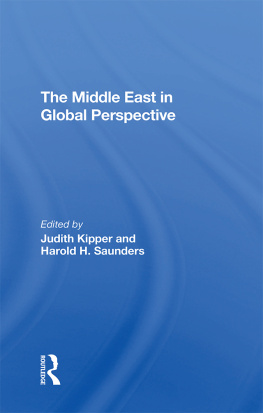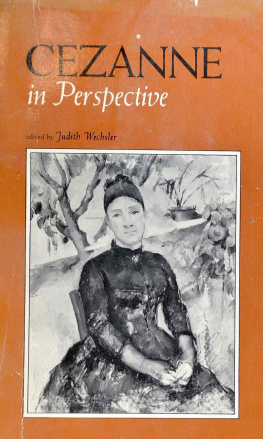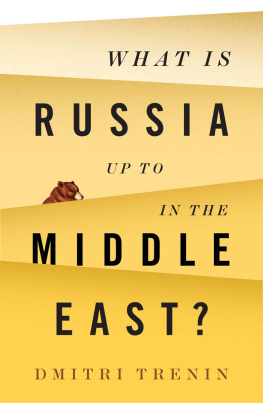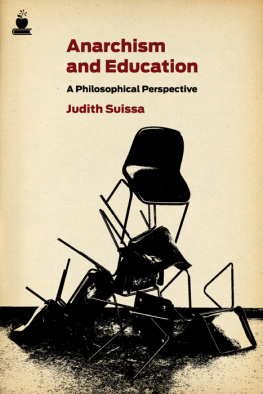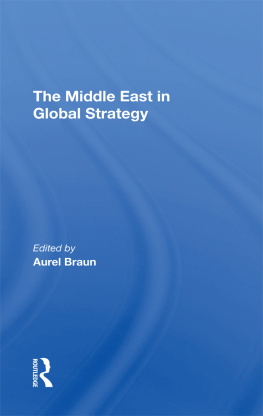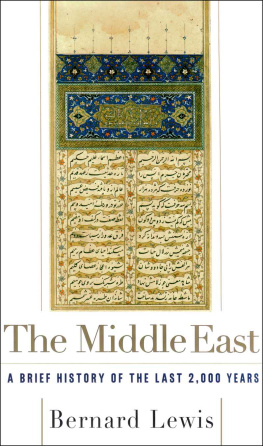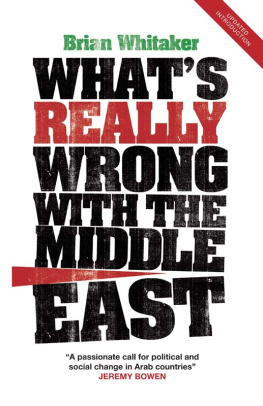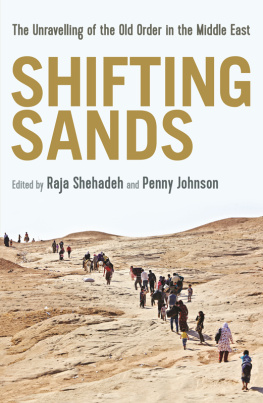The Middle East in Global Perspective
The Middle East in Global Perspective
edited by Judith Kipper
and Harold H. Saunders
First published 1991 by Westview Press
Published 2019 by Routledge
52 Vanderbilt Avenue, New York, NY 10017
2 Park Square, Milton Park, Abingdon, Oxon OX14 4RN
Routledge is an imprint of the Taylor & Francis Group, an informa business
Copyright 1991 by the American Enterprise Institute except for Chapter 7, which is 1991 by Anthony H. Cordesman
All rights reserved. No part of this book may be reprinted or reproduced or utilised in any form or by any electronic, mechanical, or other means, now known or hereafter invented, including photocopying and recording, or in any information storage or retrieval system, without permission in writing from the publishers.
Notice:
Product or corporate names may be trademarks or registered trademarks, and are used only for identification and explanation without intent to infringe.
Library of Congress Cataloging-in-Publication Data
The Middle East in global perspective / edited by Judith Kipper and
Harold H. Saunders.
p. cm.
Includes bibliographical references and index.
ISBN 0-8133-0296-X
ISBN 0-8133-0295-1 (Pb.)
1. Middle EastPolitics and government1979 . I. Kipper,
Judith. II. Saunders, Harold H.
DS63.1.M4887 1991
320.956dc20 91-4042
CIP
ISBN 13: 978-0-367-29388-8 (hbk)
Contents
, Judith Kipper and Harold H. Saunders
, Robert J. Pranger
, Meron Benvenisti
, Rashid Khalidi
, Naomi Chazan
, William Green Miller
, Anthony H. Cordesman
, Ahmed S. Khalidi and Hussein Agha
, General Avraham Tamir (Ret.)
, Robert D. Hormats
, Stanley Hoffmann
, Ghassan Tuni
, El Hassan bin Talal
, Harold H. Saunders
Guide
This book has evolved over a period of five years. This extended period of preparation reflects the complexity of producing a multiauthored volume across miles and cultures. Institutional growth, retrenchment, and change also took time, as did conflicting demands in the lives of all involved. The passage of time has required some painful rewriting, but it has also made the overall purpose of the book sharper and even more compelling than when we began.
We owe far more than the usual thanks to our authors for their patience and personal support and for going more than the extra mile in helping us to bring their chapters up to dateeven to reflect in some way the Iraqi invasion of Kuwait and the war in the Gulf. They have been more than gracious, and we are deeply grateful to all of them.
We also express our thanks to two administrations of the American Enterprise Institute, President William J. Baroody, Jr., provided the environment and leadership to launch this project, and President Christopher DeMuth provided a context for following through the preparation of the final manuscript. Edward Styles managed the production and editorial processes with patience and skill through both administrations. Dana Lane edited with the careful yet sensitive hand so important in a book for which some of the authors are kindly writing in English as a second language. We also appreciate the patience and interest of Fred Praeger and his colleagues at Westview Press and the gentle, careful editing of Ida May B. Norton in the especially difficult task of preparing the manuscript for press.
The project has been principally funded by a grant to the American Enterprise Institute from the Rockefeller Foundation. This grant not only covered the normal expenses of producing the chapters but provided support for a trip by several of the authors, traveling as a group, to host institutions in the Middle East in January 1986. We are grateful for the hospitality of the A1 Ahram Strategic Studies Center in Cairo, Egypt; the Arab Thought Forum in Amman, Jordan; the Arab Council for Public Affairs in East Jerusalem; and the Leonard Davis Institute at the Hebrew University and the Dayan Center at the Tel Aviv University in Israel.
Finally, while preparing the final manuscript, both of us have been visiting scholars at The Brookings Institution, and we want to express our thanks for its support of our broader work.
Hal Saunders expresses his thanks to Thomas R. Smerling for helping in the initial articulation of assumptions underlying his approach to international relationships. During a year of work at the American Enterprise Institute as a Bush Foundation Leadership Fellow in 19851986, Tom Smerling distilled from conversation the assumptions underlying Hal Saunders's approach and contrasted them to the current literature in the field of international relations. Although he bears no responsibility for the evolution of later formulations, his research and the conversations surrounding it helped launch this line of inquiry, which provides some of the larger thinking about the themes in this book.
Finally, we hope that the new concepts, perspectives, and vocabulary suggested here will help generate thinking that can accelerate progress toward peacewhether in the Arab-Israeli arena, in Lebanon, or in the Gulf. We write with no partisan purpose and only with a keen commitment to a peaceful resolution of the conflicts that burden the lives of those who find their destiny in the Middle East. What motivates us is our heartfelt concern for this very human dilemma.
Judith Kipper
Harold H. Saunders
Washington, D.C.
1
Introduction: The United States, the Middle East, and Our Changing World
Judith Kipper and Harold H. Saunders
Our dramatically changing world demands new perspectives to bring our experience into focus, new vocabulary for describing what shapes that experience, and new political tools for changing it creatively and peacefully. The new century before us demands a new way of thinking about how the world works and how peoples and nations relate. In few places is that need greater or more urgent than in the Middle East following the Gulf crisis and war of 1990-1991.
The concepts developed over almost five centuries to explain a world of nation-states amassing military and economic power to pursue objectively defined national interests do not adequately explain how peoples and nations act today. The instruments of force, economic pressure, diplomacy, negotiation, and propaganda that leaders have used to initiate and direct change do not reliably produce expected results. Neither these familiar concepts nor the potential of those instruments seems to inspire leaders today to guide change with imagination and direction. It may one day be said that the Gulf war was among the last wars of a traditional era, not among the first of the crises handled in the perspective that will have to govern as the nuclear age matures beyond the East-West rivalry that has begun fading away.
Nowhere have events taught this lesson more sharply than in the Middle East. The lesson is a global one, but focusing on this one area makes vivid the need for new approaches and the price of continuing to live with old perspectives and stalemates. Until we develop new perspectives, we have little chance of dealing creatively with these intractable problems. Yet in this area where more than half the inhabitants are still in their formative years, an unusual opportunity exists to help a new generation find more constructive ways to live. Just as the period following the 1973 war became a period of political changesometimes creative, sometimes destructivethe years following the Gulf crisis and war could bring historic changes to the region. How leaders and people alike interpret what they are experiencing will determine in large part how they direct the course of change.


